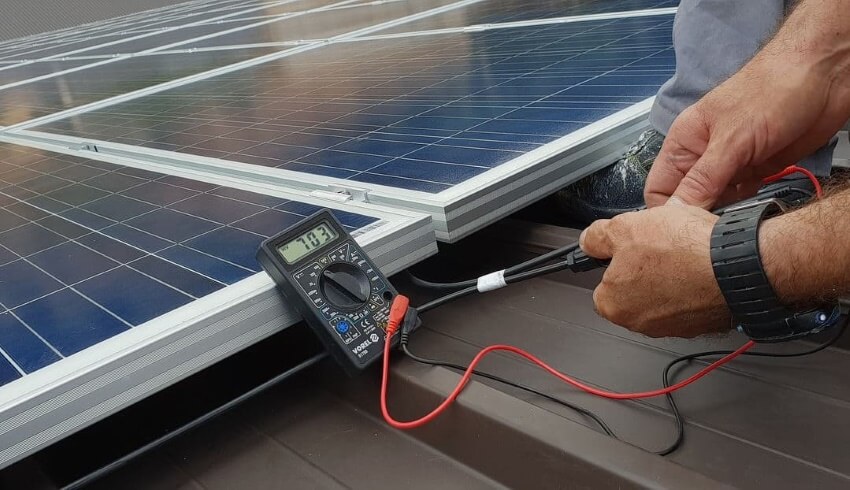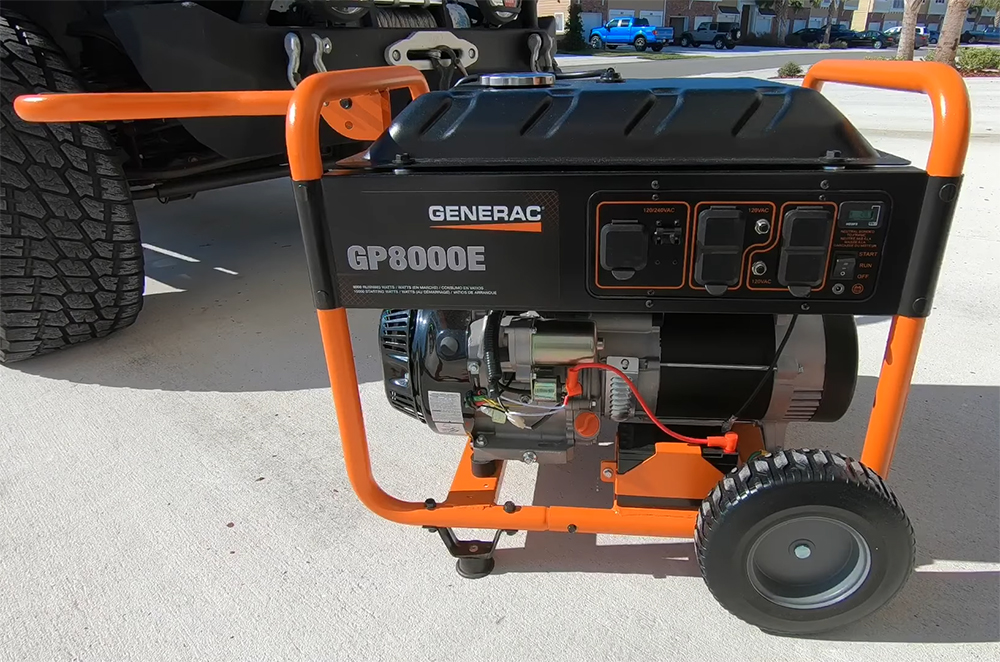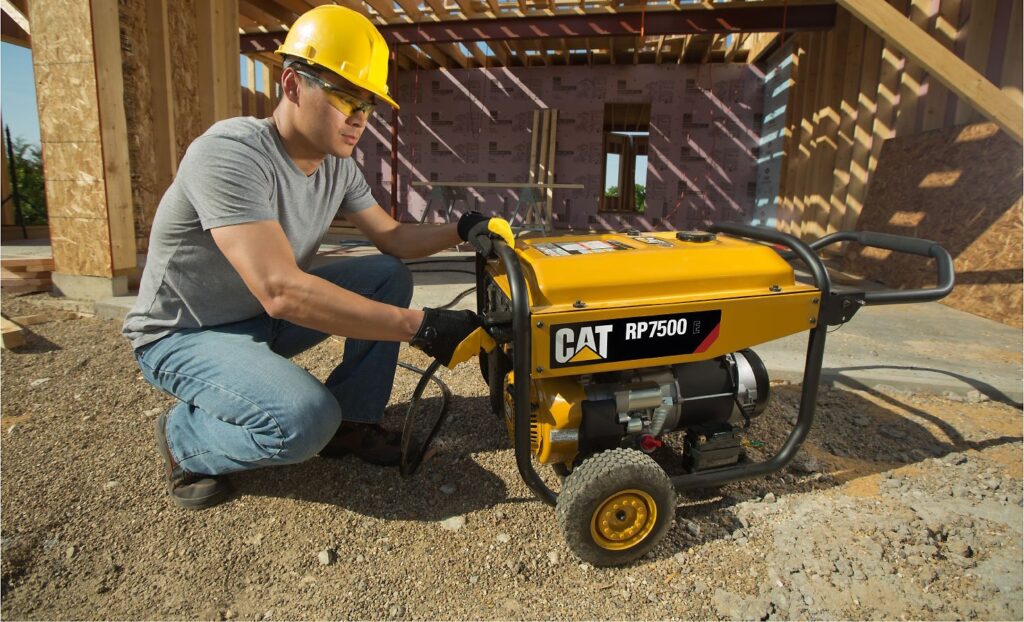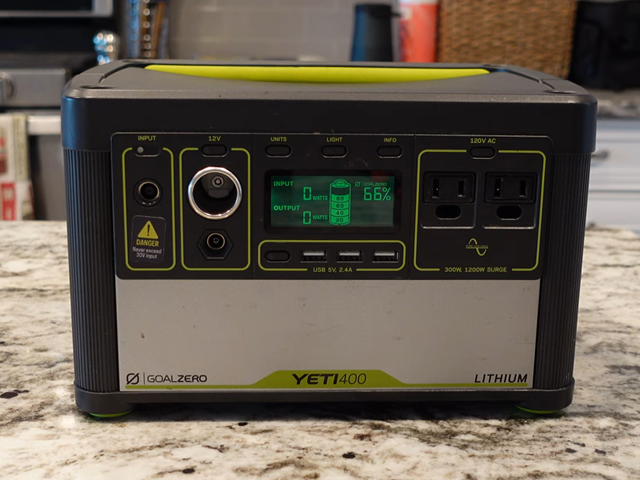
There aren’t many things worse than your boat battery running flat suddenly. Interestingly, you can prevent that kind of mess by opting for solar power—the sun’s inexhaustible energy.
However, going for solar power is not that simple, you’ll need the best solar panels for boats to call on. Unsurprisingly, there are many of them on the market but not all of them have what it takes to help you out.
Hence, we’ve tested the top-rated solar panels on the market based on their type, voltage, power output & current, dimensions & weight, cables & connection, and other features that make them ideal for boats.
In this article, we’ll recommend the solar panels we identified to be highly efficient and effective. Let’s get you to know all about the best solar panels for your boat!
More features: monocrystalline, IP67 waterproof rate, operating temperatures of -40°F to 185°F
Sitting atop our list of the best marine solar panels is the Renogy Flexible Solar Panel. Made from advanced polymer materials, this panel is lightweight. Unlike traditional solar panels that are typically rigid, this product is extremely flexible, making it versatile.
Besides, the Renogy Flexible Solar Panel is a monocrystalline panel that’s designed for off-grid applications. That means you can use the panel to power your boat. This product is also ideal for RV, rooftop, and any curved surface, thanks to its flexibility. This unique flexibility makes the panel one of the best flexible solar panels for boats.
More features: 2 UDB ports, carrying bag included, IP65 waterproof
The DOKIO 300W Portable Solar Panel Kit features nearly everything you want to make your equipment deliver power. From the main panel to the solar charger, this product works out of the box. Despite packing 300W of power, the panel is only 0.9-inch thick, making it easily foldable.
If you’re looking to upgrade the old panel on your boat, the DOKIO 300W Portable Solar Panel Kit seems like the perfect choice. It boasts a monocrystalline solar cell that produces greater power efficiency than most traditional models. Apart from being ideal for boats, this panel works for RVs, trucks, vans, and trailers too.
More features: IP65 waterproof, corrosion resistant frame, 2400 Pa static load, 23m/s wind resistance
The Topsolar 100W Solar Panel Kit comes with an intelligent charge controller and a panel made with high-efficiency monocrystalline solar cells. A heavy-duty anodized, corrosion-resistant aluminum frame and tempered glass coating protect the panel from wear and weathering. The kit also includes extension cables and mounting holes.
If you’re looking for the best roof solar panel, you might not get better than the Topsolar 100W Solar Panel. Not only is this sailboat solar panel kit built to withstand harsh weather conditions, but it’s also equipped with a bracket that adapts the mounting angle for excellent sunlight reception.
More features: 14 pre-drilled mounting holes, anodized aluminum frame
The RICH SOLAR Monocrystalline Solar Panel sports a durable and heavy-duty design. It is built with an anodized aluminum frame and strong high-transmission tempered glass. Also, the panel is designed to perform on mornings, evenings, and cloudy days, when the sun isn’t forthcoming.
If you want a solar panel that installs easily and quickly on your boat, the RICH SOLAR Monocrystalline Solar Panel is your guy. It comes with quick-connect cables, 14 pre-drilled holes, tilt mounts, side pole mounts, and Z-brackets to ensure easy installation.
More features: anti-corrosion frame, IP65 waterproof, drainage holes, Z-bracket mounting system, operating temperature -40°F to +185°F
The Renogy KIT-STARTER-100D features a corrosion-resistant aluminum frame that makes it suitable for outdoor use. As a matter of fact, the frame can withstand high winds of up to 2,400Pa and snow loads of up to 5,400Pa. Also, the equipment supports lithium batteries, gel batteries, and lead-acid batteries.
If you’ve got a small budget and you still want a reliable solar panel for your boat, the Renogy KIT-STARTER-100D is made for you. At a relatively low price, you get almost everything you need to power your boat. From the solar charge controller to the pre-drilled holes, life’s easier as a sailor with this solar panel kit.
More features: corrosion-resistant frame, IP65 waterproof, LCD screen, Z-bracket mounting system
The Pikasola Solar Panel Kit contains several important components, including a monocrystalline panel made from a highly efficient solar cell. The panel’s toughened glass and corrosion-resistant aluminum frame help it to withstand high snow loads and winds. Also, there’s an IP65 Waterproof Junction Box that protects against environmental particles.
Moreover, the Pikasola Solar Panel is expandable to a maximum power output of up to 240W (12V) or 480W (24V), making it perfect for big boats. So, if you’ve got a big boat, you know the panel to consider. Also, the kit features an LCD that makes the panel easier to use on your solar power sailboat. With its enormous power, this panel could pass as one of the best yacht solar panels.
More features: 2400PA wind resistance, withstands 5400PA snow loads, IP65 waterproof
The Newpowa Monocrystalline Solar Panel and its junction box are protected from water splash (IP65 waterproof rating) and common weather conditions, including high winds and snow loads. On top of that, this panel features multi-layered sheet laminations that improve cell performance and ensure durable service life.
Furthermore, the Newpowa Monocrystalline Solar Panel features a heavy-duty anodized frame that offers robust protection for the structure. In terms of longevity, this panel boasts the most durable frame you can buy to power your boat for several years. A 25-year transferable power output warranty guarantees that.
More features: 3 ft cable, 14 pre-drilled holes, anodized aluminum frame
The RICH SOLAR Polycrystalline Solar Panel rounds off our review of the best sailboat solar panels. It boasts a multi-layer protective system and solar energy chips that maintain efficient energy conversion. On top of that, this panel features an anti-reflective and low iron tempered glass and an IP65-rated junction box that protects it against environmental particles.
You’ve seen a lot of monocrystalline solar panels already, but the RICH SOLAR Polycrystalline Solar Panel provides a glimpse into what polycrystalline panels look like. It works with 36 efficient polycrystalline solar cells that deliver excellent performance. So, if you’re looking for the best polycrystalline solar panel for your boat, this product may be suitable for you.
With hundreds of solar panels on the market, picking out the best solar panels for boats can be quite challenging. But the task can be less challenging if you know the right places to look. We’ve developed a comprehensive buying guide that contains every piece of information you need to choose the ideal panel for your boat. Read on to learn all about the secrets we have in store for you.
After buying your preferred solar panel, the next step will be powering your boat with the equipment. If you don’t have any idea how to make this happen, this video provides an in-depth explanation of what to do:
As you’ve probably noticed already, there are two main types of marine solar panels to consider; Monocrystalline and Polycrystalline.
As the name of the monocrystalline solar panel hints, it is made from single crystal of silicon Trusted Source Monocrystalline Silicon Cell - an overview For monocrystalline Si cells, it is imperative that a thin layer of dielectric like SiO2 or Si3N4 be deposited on the Si to reduce surface recombination and improve the electrical properties of the device. www.sciencedirect.com . Manufacturers slowly grow these crystals into ingots of significant size, after which they cut them into individual solar cells. They assemble the cells into panels once the process is over. These panels’ uniform structure makes them have the highest efficiency among all types of solar panels.
While monocrystalline solar panels are quite efficient, they don’t come cheap.
Unlike monocrystalline solar panels, polycrystalline cells are made up of many tiny silicon crystals. The manufacturing process involves melting many silicon fragments Trusted Source Monocrystalline vs Polycrystalline Solar Panels When it comes to solar panels, one of the most asked questions is which solar cell type is better: Monocrystalline or Polycrystalline? ases.org which are poured into a mold afterward. While this process tends to be cheaper, it causes lower efficiency.
Many sailors go for polycrystalline solar panels because they provide a decent efficiency for a lower cost, which can be smart, especially if they have a small boat.
Below, as promised, we’ll dissect the factors you must consider to pick the best solar panels for boats:
Before choosing a solar panel for your boat, you should know its maximum voltage output. A typical 12-volt panel generates a maximum terminal voltage of around 17 – 20 volts in full sunlight without a connected load.
In case you didn’t know, the panel’s voltage directly affects the equipment’s power output, so you must choose a product that offers high voltage. You can opt for a panel that offers as low as 18 volts like the Renogy Flexible Solar or go for the Topsolar Solar Panel’s 24 volts.
The power output of a solar panel is perhaps the most important part of the equipment. But that’s as important as the maximum current. You’ll have to consider these two factors before opting for a panel.
Measured in watts, the power output determines how much power you get from the panel. If you need the equipment to power electrical appliances on your boat, you’ll need a product that offers between 100 and 200 watts like the RICH SOLAR Monocrystalline Solar Panel.
If you’re living on the boat, you’ll need a solar panel that offers between 250 to 350 watts. The DOKIO Portable Solar Panel boasts a power output in that region and can be a great asset for sailors who want to power as many electrical appliances as they need. Overall, you should choose a panel that suits what you need.
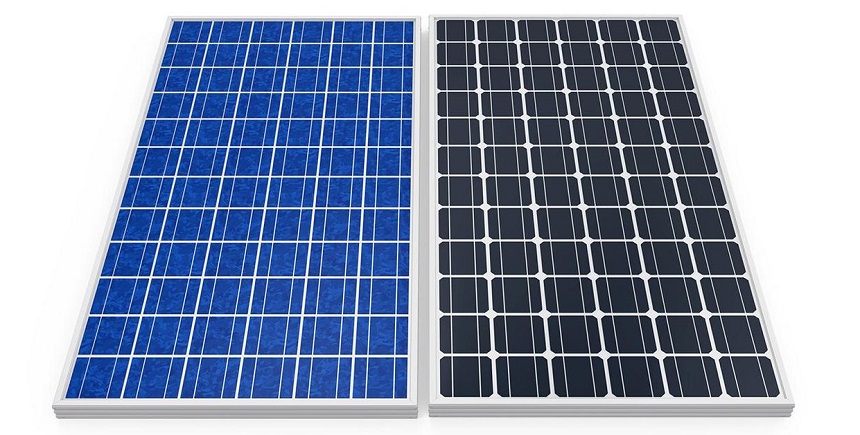
By now, you know that you have to choose between monocrystalline and polycrystalline solar panels for your boat. There are two considerations here; efficiency and cost. As we explained earlier, monocrystalline panels are more efficient than polycrystalline panels but the former is more expensive than the latter.
If you care more about efficiency, you should choose a monocrystalline model like the Pikasola Solar Panel. However, if you place a premium on cost, a polycrystalline variant such as the RICH SOLAR Polycrystalline Solar Panel will work for you. Eventually, you should choose the type that best suits your preference.
Another factor you can’t dismiss when looking to buy a solar panel for your boat is the size. You’ll have to consider the dimensions and weight. If you have a small boat, you’ll need a small and lightweight panel like the Renogy Flexible solar panel. However, if your boat is big, a panel like the Newpowa 200W Monocrystalline can be a suitable choice.
Before you choose a solar panel for your boat, ensure that it has the right size and is not too heavy for your vessel.
You should never choose a solar panel for your boat without considering the included cables and connectors. Frankly, not all panels come with these important components. Their absence usually puts buyers through the hassle of buying them separately, which is not cost-effective.
Therefore, we recommend that you only buy a panel that comes with cables and connectors. Most solar panel kits usually include these components. The Renogy KIT-STARTER-100D and Pikasola Solar Panel Kit are good examples of such kits.
Beyond the major features, there are extra features you should look out for in a solar panel before going for it. One of those features is waterproof design. You can’t afford to install a panel that’s not protected against water damage on your boat. Unsurprisingly, top products such as Renogy Flexible Solar Panel and Newpowa Monocrystalline Solar Panel offer protection against water.
These products also provide snow and wind resistance; another important feature you have to look out for. Lastly, you should check a panel’s operating temperatures and ensure it can work in even low temps before buying it.
You can’t mess around about durability; it’s very important. Solar panels are not cheap, so you must ensure that you buy a durable product. You should ensure that the product boasts the best materials and cells. As an extra protection, you should opt for a panel that offers an attractive warranty.
For example, the Renogy Flexible Solar Panel and the RICH SOLAR 200-Watt Polycrystalline Solar Panel offer a 25-year limited power output and a 5-year material & workmanship warranty. You’ll hardly get a better warranty than the ones these products offer.
If your panel doesn’t come with a controller, buy it separately to protect your battery life.
Marine solar panels use the natural and free energy of the sun to make boats entirely self-sufficient, which is pretty cool. We’ve reviewed 8 top panels in this article with the Renogy Flexible Solar Panel emerging as our editor’s choice for many important reasons. This panel is designed to withstand excessive wind and snow loads, is waterproof, and boasts a flexible design that makes it quite versatile.
Breathing down this product’s neck is the DOKIO 300W Portable Solar Panel – our upgrade pick that boasts enormous power output for sailors living in their boats. It also features a charge controller that protects battery health. Taking the crown as our value pick is the Renogy KIT-STARTER-100D – a solar kit with several components to get the panel started.
Without question, there’s no lack of fantastic choices among the best solar panels for boats, but you should choose the product that serves your needs.

